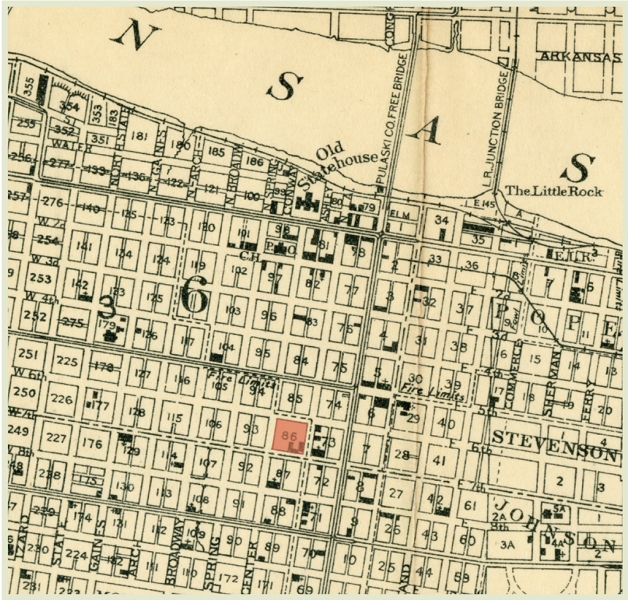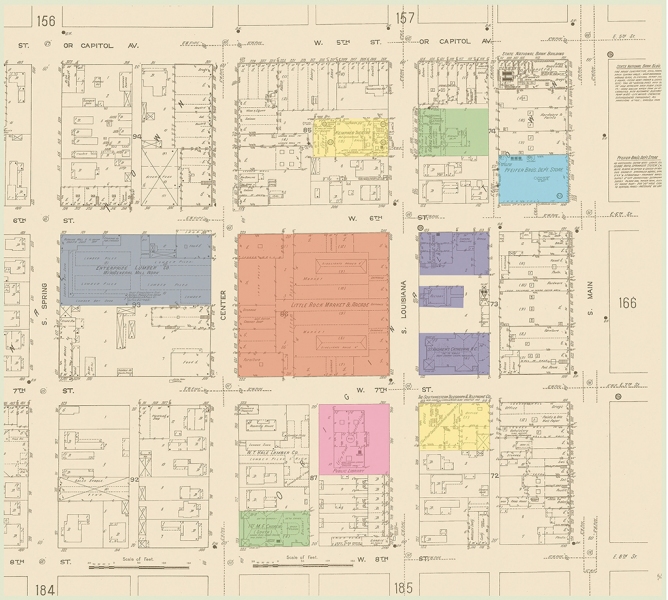Prominent Little Rock businessmen — Fred W. Allsopp, Ike Kempner, Harry Lasker, and Chris Ledwidge — were the driving force behind the building’s creation. Little Rock's explosive growth within the past decades exposed a need for better infrastructure, including a more firmly regulated food supply. Recognizing an opportunity for a central marketplace that adhered to the latest standards in health and sanitation, the quartet formed the City Market and Arcade Company on July 6, 1912.[1]
Needing a location for their vision, the company found an ideal site in the heart of Little Rock’s business district. Mount St. Mary Academy vacated the lot the Diocese of Little Rock owned, the Cathedral of Saint Andrew to its east. The school had moved to Pulaski Heights four years earlier, needing more space for its rapidly growing student population. Nearby taverns and manufacturing industries had also made its former location increasingly unattractive for the school.[2] For a marketplace, however, the spot was perfect.
Bishop John B. Morris agreed to lease the land to the City Market and Arcade Company for 99 years. Two company directors and an architect then traveled around the country to study marketplaces in other cities. When they returned, they were ready for architects to design the building.[3]
*The banner photo shows Mount St. Mary before it moved to its current location in Pulaski Heights, Mount St. Mary Academy was located across the street from the Cathedral of Saint Andrew. It was torn down for the construction of the Arcade. This is a photograph from Little Rock Scenes II Photograph Collection, UA Little Rock Center for Arkansas History and Culture (ualr-ph-0037_na_na_pho0007).
[1] “Articles of Agreement and Incorporation of the City Market and Arcade Company of Little Rock,” Arkansas Secretary of State, July 8, 1912.
[2] Sisters of Mercy in Arkansas with Jane Ramos, Arkansas Frontiers of Mercy: A History of the Sisters of Mercy in the Diocese of Little Rock (Fort Smith, AR: St. Edwards Press, 1989): 149.
[3] Forster, Bobbie, “New Motel, Transition Recorded,” Arkansas Democrat, December 13, 1959.


